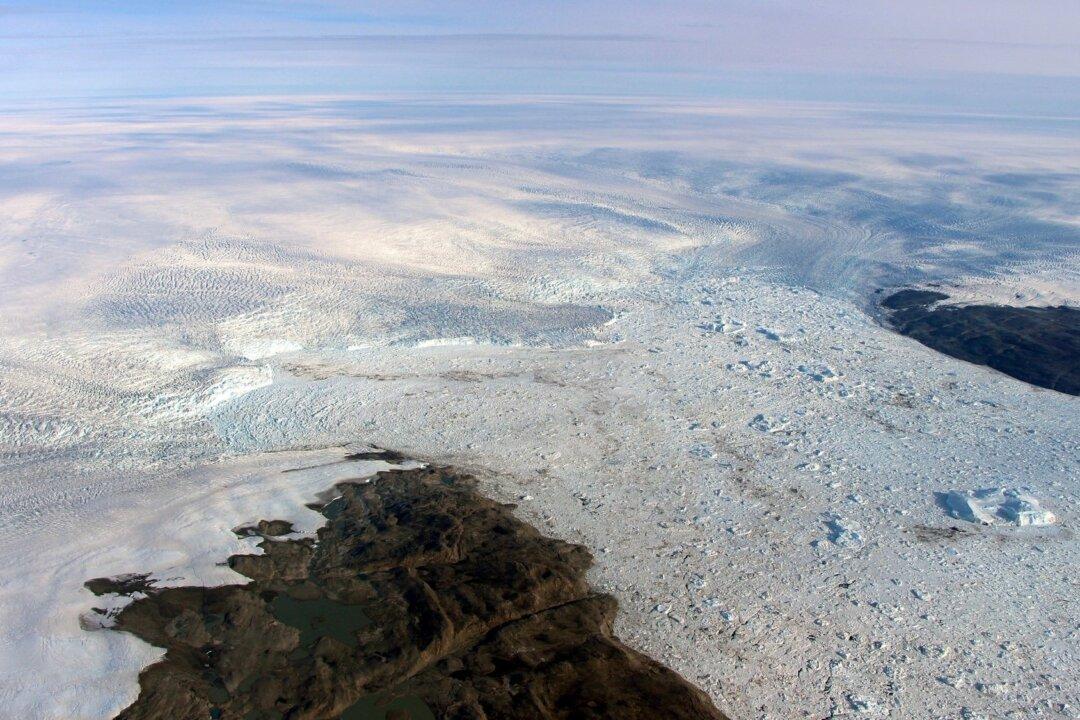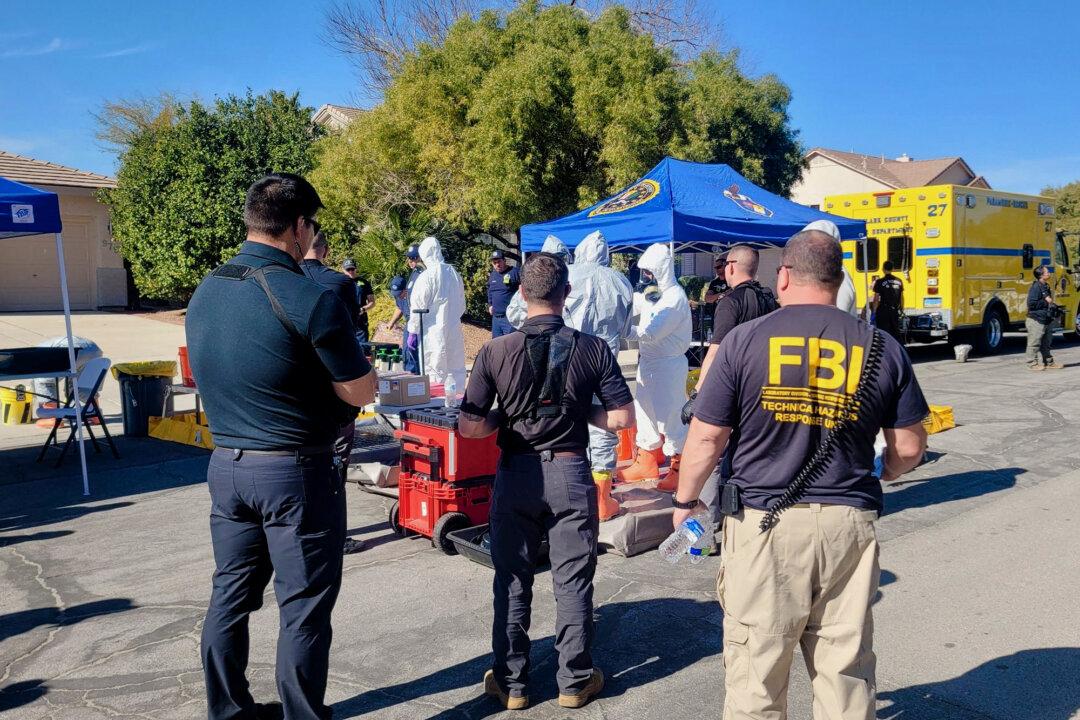WASHINGTON—A major Greenland glacier that was one of the fastest shrinking ice and snow masses on Earth is growing again, a new NASA study finds.
The Jakobshavn glacier around 2012 was retreating about 1.8 miles (3 kilometers) and thinning nearly 130 feet (almost 40 meters) annually. But it started growing again at about the same rate in the past two years, according to a study in Monday’s Nature Geoscience.





